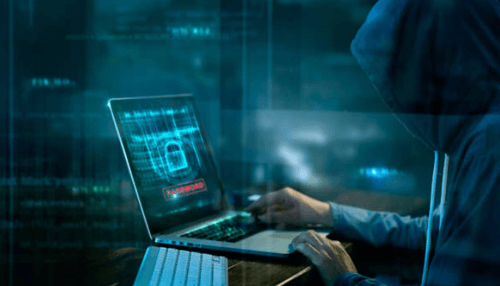The number of people who use digital platforms is increasing day by day due to technical innovations. However, they face cyber-attacks from hackers and others that result in various problems. It is difficult one to know when the next major cyber threat will occur while performing important tasks online. As a matter of fact, the future of cybersecurity is gaining importance over recent years in order to minimize potential threats. Most organizations focus more on investing money in cybersecurity technologies to eliminate unwanted issues.
Knowing more about the future of cybersecurity
No one can predict the future of cybersecurity and organizations can pay attention to below mentioned things.
#1 Artificial intelligence (AI)
Artificial intelligence (AI) will become a core component in all cybersecurity systems. This is because it allows organizations to focus more on their day-to-day operations accordingly. AI and machine learning play a significant role in automating tasks with high accuracy. Apart from that, both of them help crunch data and make decisions faster.
At the same time, new AI technologies create security risks because most organizations are not able to understand them immediately. Therefore, future cybersecurity software and personnel will give more importance to developing new techniques to detect security issues with ease.
Besides that, future developers will embed AI Security in user interfaces to address the needs of organizations. Artificial technologies will warn companies about risky websites or reveal any weak points to fix them accurately. In addition, AI can bring automation and autonomous machine decisions by leveraging the capability to a large extent.
#2 Developing cybersecurity talent will become essential
With cyber-attacks growing in large numbers, organizations have to spend more money on protecting themselves. Furthermore, many countries face a shortage of workers who have excellent skills when it comes to cybersecurity technologies. In fact, the gap between expert personnel and open positions is widening day by day. Therefore, it will become difficult for organizations to hire experienced staff due to high expenses. Nowadays, there are several training institutes that conduct Cyber Security course at different levels.
#3 Organizations have to deal with more hackers
A recent study reveals that most hackers use automated scripts. One of the main techniques used for protecting information is encryption. Symmetric and asymmetric encryptions are two methods used in the cybersecurity process. Quantum technology will affect encryption techniques and organizations need to implement them properly.
#4 The Internet of Things
Although cyber security professionals are well-equipped with versed knowledge, they face a lot of challenges. That means they need to focus more on some other technologies. Some of them include data analytics, the Internet of Things, cognitive computing, and cloud computing which will help get better results. Users should also know how to use new and advanced technologies with good password protection practices.
#5 Cybersecurity and mitigation
Companies need to identify and track risks in advance to prevent potential threats. They must know how a project gets influenced by cyber threats that can help fix them quickly. The cloud infrastructure is becoming a soft target for cybercriminals and many companies face difficulties in managing them. Hence, organizations should invest more money in the use of biometrics and other technologies for identification purposes.
#6 Large data and complexity systems
Companies should know about the future of cybersecurity from different sources that can help gain more ideas. Future cybersecurity systems should provide the option for handling a large amount of data with ease. This is because cyber attackers will utilize the most advanced technologies to hack the data. As a result, the next generation has to develop and drive new systems for ensuring high-level protection.




